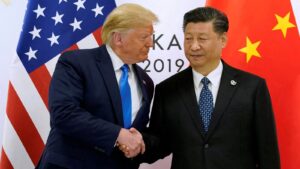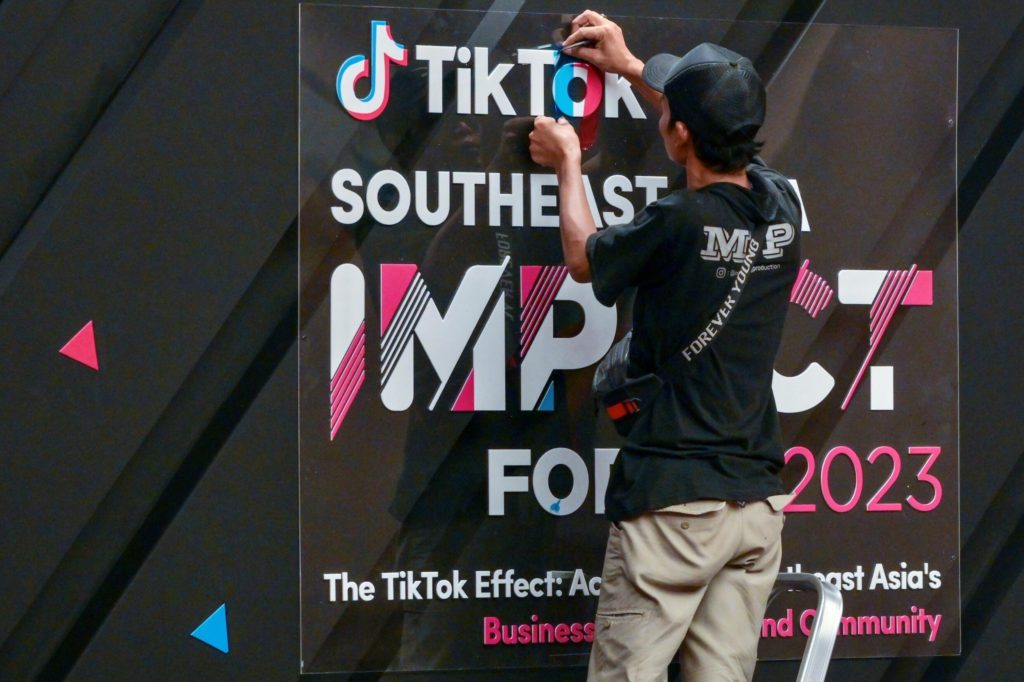|
Getting your Trinity Audio player ready...
|
TikTok, the popular social media app, is suspending its online shopping service in Indonesia as it seeks to adhere to newly implemented regulations in Southeast Asia’s largest economy. This move is in response to the Indonesian government’s efforts to safeguard the interests of local physical and online retailers.
The suspension of TikTok’s online shopping service is set to take effect at 17:00 Jakarta time (10:00 GMT). Indonesia was the pioneering country for TikTok’s e-commerce service in 2021, and it quickly became one of the platform’s largest markets for TikTok shops.
Last week, the Indonesian government unveiled regulations that require TikTok to separate its shopping feature from its popular video-sharing service within the country. Indonesia’s Trade Minister, Zulkifli Hasan, emphasized the need for a clear distinction, stating, “Now, e-commerce cannot become social media. It is separated.” Social media platforms were given a one-week deadline to comply with these new rules, with the risk of losing their operating licenses in the country looming over non-compliance.
Indonesia’s President Joko Widodo had previously expressed concerns about the unchecked growth of e-commerce, noting the necessity for regulations to ensure responsible and ethical practices in the industry.
In response to the regulatory changes, TikTok released a statement on Tuesday, saying, “Our priority is to remain compliant with local laws and regulations. As such, we will no longer facilitate e-commerce transactions in TikTok Shop Indonesia.”
Indonesia has experienced a substantial surge in online retailing over recent years. The value of e-commerce sales in the country is expected to have grown more than sixfold between 2018 and the coming year, reaching a significant 689 trillion Indonesian rupiah ($44 billion; £36.5 billion), according to data from the country’s central bank.
TikTok Shop has been steadily expanding its market share in Indonesia’s online shopping sector, which is predominantly dominated by platforms like Tokopedia, Shopee, and Lazada. Indonesia, with a population of over 278 million, boasts 125 million TikTok users, including 6 million sellers and numerous content creators who use TikTok Shop to promote their products.
In June, TikTok’s CEO, Shou Zi Chew, made a commitment during his visit to Indonesia, pledging to invest billions of dollars in the region over the next three to five years, highlighting the company’s strategic interest in Southeast Asia.
However, the growth of online retailers has posed challenges for traditional brick-and-mortar businesses, such as Sukmamalingga, which has operated a store selling Muslim clothing at Jakarta’s Tanah Abang Market for nearly a decade. He remarked, “None of my customers from different regions in Indonesia shop anymore, even though I frequently send photos of new clothing models.”
The new regulations in Indonesia represent another hurdle for TikTok, which has faced scrutiny in various regions, including the United States, the European Union, and the United Kingdom, where the app has been banned from parliamentary networks over security concerns.



